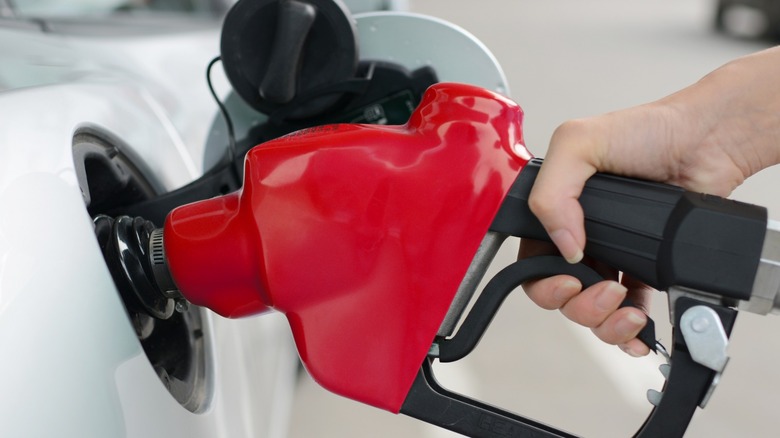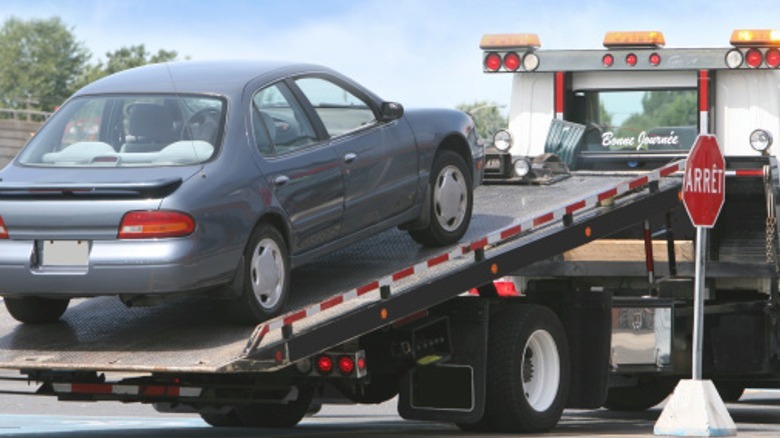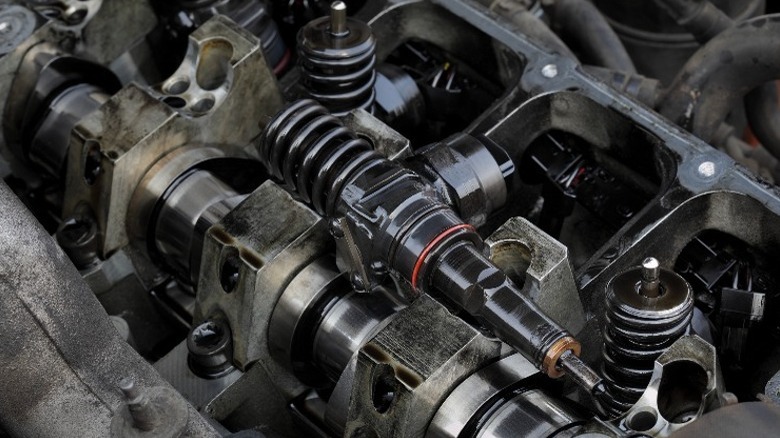What To Do If Regular Gas Gets In Your Diesel Engine
Diesel is not gas. While it comes from the same source as gasoline (crude oil), under no circumstances should diesel-powered vehicles function using gasoline. Gas combusts very differently from diesel, and putting it in your diesel-powered engine could cause irrevocable damage — just like what would happen if you put diesel in your gas-powered car.
If this happens to you, do not start your engine because doing so will cause the pumps to move gasoline into the engine. Not only will this lead to your engine knocking and misfiring, but it could damage mechanical parts and ruin your fuel system. Diesel has lubricating properties that gasoline lacks; the extra friction could cause serious problems.
This issue may be more common than you might think. It's easy to forget what kind of fuel your vehicle needs, especially if you were using a gasoline-powered car before switching to a diesel one. But when this happens, your priority should be getting the gasoline out of your car's tank ASAP.
What do you do when you find out there's gas in your diesel car's tank?
The first thing you should do is make sure the diesel car's engine is off. If you managed to get your vehicle to move before finding out you put gasoline inside, put your vehicle in neutral gear, kill the engine, and roll to the side of the road.
You should then call for a tow truck to transport your vehicle to a mechanic or a service center. Don't be tempted to think you can fix the situation yourself — even if you have experience. You'll still need a tow truck to move your vehicle.
Once your car is with a professional, they will drain the fuel tank completely and flush the fuel system. Don't ignore the fuel system because a decent amount of gasoline can hang around your vehicle's lines and injectors.
After that, the mechanic will likely open the engine and inspect it for damage. If you're lucky, you might not need any replacements. But in severe cases, you might need a new fuel injection system, engine parts, or a completely new engine.
When the vehicle is drained, you can refill the tank with diesel and test to see if it's working properly now. Return to an expert if you notice any loss of power, knocking, or pinging sounds coming from the engine.
Why can't gas work in a diesel car?
While diesel and gasoline are both fuel for combustion engines, the fundamental way they fire differs. Diesel uses compression to detonate, whereas gasoline needs spark plugs. The pistons in a diesel engine compress the air in the cylinder, heating it up. Then the fuel system injects a spray of diesel into the cylinder, and it explodes, forcing the piston down and rotating the crankshaft.
These engines have a higher compression ratio than gasoline engines, making diesel engines more efficient than gas. That's why they produce more power than gasoline cars, which is probably why you might choose a diesel engine over a gasoline one.
Gasoline is more flammable than diesel, so introducing it to a diesel engine means it will ignite way more quickly and cause misfiring and knocking. The engine's mechanical components were designed for diesel viscosity, density, and lubrication.
Gas also has higher solvent properties than diesel, and these can contribute to overheating the fuel system (due to friction), incomplete combustion (which could manifest as black smoke), and clogging.


